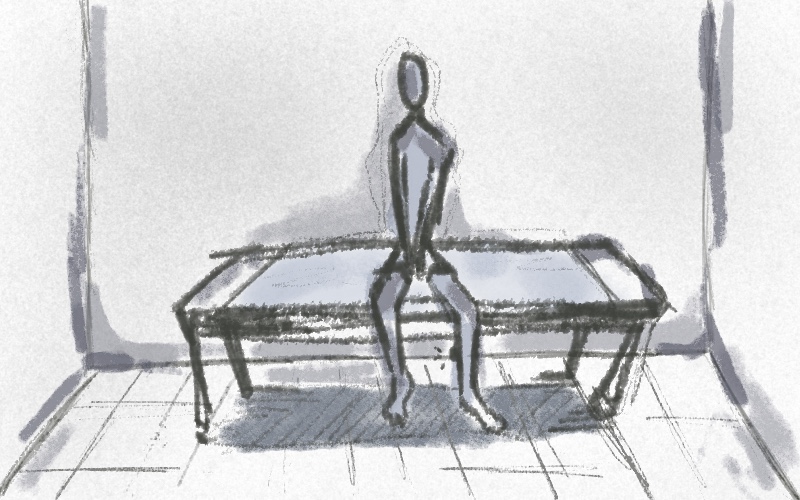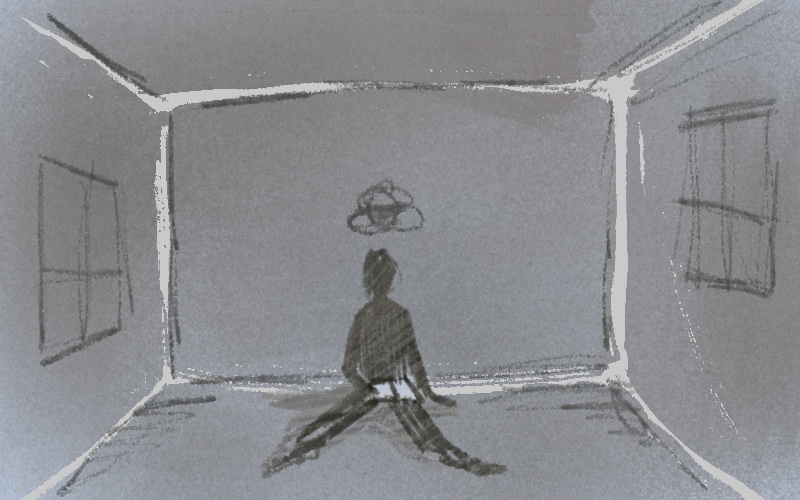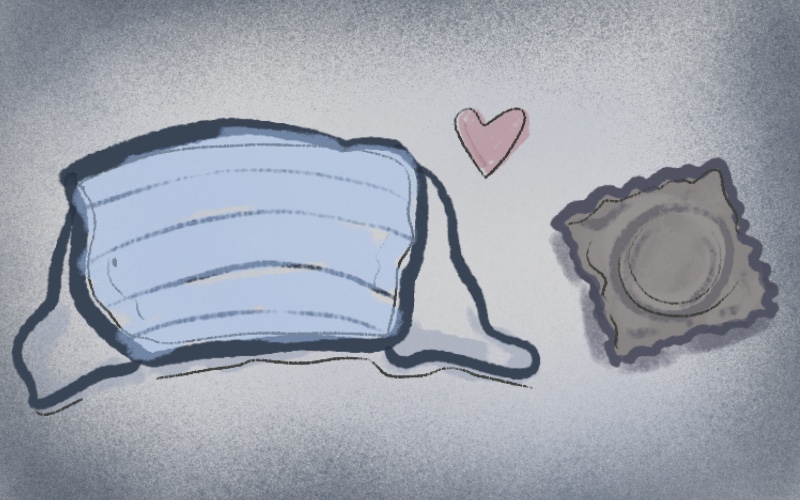Amid all the grim COVID-19 news in the spring, a quote from the French Prime Minister did make me smile. “Everyone in France is preoccupied by whether he can go on holiday this summer,” he said during a speech about how to handle tourism during the pandemic. One thing I’ve learned about the French after living in the country for several years is that they’re as fixated on their summer holidays as a lover on his loved one. In 2020, would they suffer the torment of finding the loved one was out of reach?
As summer neared, the course of the pandemic in France allowed the authorities to loosen one restriction after another. From being required to remain within a kilometer of our homes, our territory was first enlarged to 100 kilometers, and after that, we were allowed to travel anywhere in the country. As June advanced, one friend went canoeing in the Dordogne, another visited his second home near Avignon.
I planned a trip myself, a hike along the Brittany coast. I made hotel reservations for the second week of July knowing I might bail if the pandemic took a turn for the worse or I simply lost my nerve.
When my friend Mary called from the Bay Area, I hadn’t yet decided whether to tell her about my trip, worried she might try to talk me out of it. Mary was taking even more precautions than I was, keeping on her mask just to meet with friends.
In the end, I did reveal my plans, emphasizing the positive aspects. “I leave from the Gare Montparnasse, which is just down the street from me, so I won’t have to take the metro. I’m forking out more money to travel first-class, which should be less crowded.”
Although Mary didn’t try to dissuade me from making the trip, she did warn me of one potential danger she’d just read about, the toilet plume effect. When someone flushed a toilet, the rush of water could push particles of fecal matter into the air, and they might contain the virus. This was a new one for me. Mary said, “Before you enter a toilet, you’re supposed to let a minute pass after someone else has finished.”
That night, I dreamed I was peeing in a public toilet while trying to hold my breath the whole time. Even in the anything-is-possible world of dreams, I didn’t succeed.
Later, another dream. I was walking beside a man I had a crush on. He took my hand. Wonderful to have him hold it. As we passed under a tree, he took me in his arms, which was even more wonderful. A moment later, the realization came that he planned to kill me. I had a fast, sickening transition from pleasure to danger. This dream was like ones I’d had during the other pandemic in my life: the AIDS pandemic. It wasn’t the first dream that had reached me through a time tunnel leading from the early 1980s to 2020.
Waking, I lay in bed seesawing between the past and the present, between one pandemic and another.
The past . . .
I’m visiting my friend Larry in the hospital. He looks like a puppet, with thin, thin limbs. He shows me a brown constellation of Kaposi sarcoma lesions on his inner thigh. He’s confident his chemotherapy will get rid of them. “I’m sure I’ll be well by Christmas,” he says. I dread his asking if I agree.
I’m sitting in my underwear on the examination table in my doctor’s office. I’m waiting for him to come in and tell me whether the mark I noticed on the back of my leg is a Kaposi sarcoma lesion. If it is, I have AIDS, like Larry. My palms are sweaty, my heart racing. After examining the mark, the doctor says, “No, it’s just a mole.”

I’m riding the metro home from work. As it arrives in Castro Station, several kids are horsing around at the other end of the car. They’re holding their breath. One covers his mouth with his jacket. I get it: the kids are holding their breath because this is Castro Station, and the Castro is where all the gay men live, and gay men have AIDS, and you don’t want to breathe the air there because you might get AIDS, too.
I’m out to dinner with some friends. “They think it’s in the sperm,” says one friend. “You probably get it through fucking,” asserts another. “The most dangerous sexual diseases enter through the mouth,” according to a third. We fail to reach a consensus, and there’s no scientific authority to refer to. Who would dare propose studying how gay men can safely perform acts that are still illegal in almost half the states?
When COVID-19 arrived on the scene, I spun through the same kaleidoscope of emotions as everyone else: fear, dismay, confusion, anger. One emotion I didn’t share so much, and that was surprise. How on earth could something like this happen, many people seemed to ask, in our technologically advanced, ever-progressing twenty-first-century world? I wasn’t as surprised as they were because something like this had happened to me before.
If asked how I survived the AIDS pandemic, I would say: because of my virtues, because of my faults, and because I was lucky.
The main virtue I made use of was common sense. When I became aware of AIDS, I sifted through the information available and made educated guesses about how I should change my behavior.
The faults that helped me were pessimism and hypochondria. My pessimism made me ready to believe that a catastrophe could be stealing up on us, my hypochondria that it might take the form of a horrifying new illness.
As for being lucky, I’m sure I dodged some bullets. No doubt I had unsafe sex with at least a few men who were positive without becoming infected myself, possibly even before alarm bells had begun to sound about this mysterious new disease.
With the appearance of COVID-19, I called once again on my virtues and faults. I was ready to accept the evidence that a pandemic was emerging. I followed the rules as they developed. My hypochondria meant that precautions like hand-washing came easily to me, and as requirements have fluctuated about wearing a mask, I’ve stuck with being ever-masked outside my home. As with AIDS, I’ve probably also been just plain lucky.
When the tidal wave of AIDS was revealing its full extent, with its cause still unclear, my solution was to isolate myself. I gave up going to the bars. I even stopped flirting with guys I met in other settings, like a couple of cute guys in my gay folk dance class. It didn’t seem fair, since I didn’t intend my flirting to lead anywhere. I spent a lot of evenings alone in my studio apartment on Nob Hill, from which I could hear the tang tang of the cable car climbing Powell Street. I read, I wrote, I listened to old radio shows since my television was broken and I didn’t have the money to fix it.
Fast forward 36 years, to the spring of 2020, and I found myself isolated in another studio, in Paris this time, where I could hear the traffic roaring along the Boulevard du Montparnasse. Now it was the government that was confining me to my little home. I was allowed outside for an hour a day, and even then, I had to carry a document saying which out of five reasons I had for being on the street. I supplemented my hour a day of outdoor exercise by a half-hour every evening walking round and round the garage in my building. But again, I was helped by this not being a completely unfamiliar situation. I’d done something like this before. I read, I wrote, I had video chats with friends, I studied my list of French vocabulary.

On one of my prison-yard outings, I noticed a small poster on a lamppost. It depicted a cartoon face with a sloppy mask leaving the nose free. Next to this was a cartoon male body with its underwear pulled down to expose the cock. You wouldn’t wear your underwear this way, the poster asked, so why your mask?
Déjà vu, as the French say. This poster called up ones from my past that encouraged condom use. As here, these had often worked the cute angle, usually resorting to the image of a banana. Nowadays, the cock that might spew lethal cum has been replaced by the nose that may emit dangerous air. Sex with a condom is comparable to talking with someone through a mask. We can perform the act, though its pleasure is diminished and we still aren’t sure we’re getting 100 percent protection.

In post-confinement Paris, an atmosphere of suspicion hangs over public places. Is this person coming too close to me? Why is that person over there coughing? This reminds me of the early days of my other pandemic. Gay men were leery of each other, and, when rumors and misinformation circulated, the general public was leery of us. Could they get AIDS from toilet seats, hot tubs, drinking fountains, from sitting next to a gay man, from shaking hands with him?
As during the AIDS era, I may see someone on the street and think, “It must be safe to interact with him, he seems perfectly healthy.” I have to remind myself that looks can be deceiving. Phrases like “asymptomatic” have reappeared in my thoughts, along with “incubation period” and “diagnosed positive.” I consider what are the most probable modes of transmission and which are statistically unlikely. Then: do I give up oral sex because very few people have gotten AIDS that way? Now: do I refuse to get my hair cut because there’s a remote chance my hairdresser might infect me? Then: is it worth the risk to have sex with this or that man, and if so, exactly what sort would we have? Now: is it worth the risk to meet this or that friend for a drink, unmasked?
COVID-19 has brought my dating life in Paris to a screeching halt as surely as AIDS did many years ago back in San Francisco. The experts don’t yet know whether COVID-19 can be transmitted by sexual intercourse, like HIV/AIDS. Still, the precautions they recommend can’t help but remind me of the safe sex protocols developed in the eighties: avoid partners who have symptoms of COVID-19, avoid sexual behavior involving semen, use condoms. The only novelty is, “Wear a mask during sexual activity.”
The two pandemics often converge in my mind. In other ways, they stand in stark contrast. The most obvious difference is that, aside from the pandemic deniers in the U.S. and elsewhere, we acknowledge that with COVID-19, we’re in this together. In his first address about COVID-19, President Macron repeatedly used the phrase “we are at war” to rally the nation. During the confinement, at eight every evening people across France threw open their windows and united in applauding the healthcare workers on the front lines of this war and showing solidarity with each other.
With AIDS, at least at the start, the general public largely abandoned to their fate the groups most vulnerable to the disease: IV drug users, gay men. Instead of a former TV reality show host at the helm in the U.S., we had a former screen actor who managed to get through the first four years of that pandemic without even mentioning the word AIDS in public. People weren’t throwing open their windows every evening to clap their hands and bang on pots.
Back in San Francisco in the ’80s, week after week I would take up the Bay Area Reporter, a gay newspaper, and compulsively turn first to the obituaries. Had anyone I’d known died? Oh, I remember him from the book club. And him, too, we picked each other up during our lunch hour downtown. And that guy cut my hair . . . Did all these people have to perish, often while only in their twenties or thirties, or could this have been prevented if more of us had cared? Some people went so far as to relish the fate of people with AIDS. As far as I’m aware, no one has told anyone suffering from COVID-19 that he’s a godless sinner who deserves to die.
I’m not as thrown as some people by the arrival of COVID-19, and I may be better prepared, like a sailor suffering through one shipwreck after surviving another. On the other hand, the current pandemic presents some particular difficulties for me. A nightmare scenario I thought was behind me has returned in a different form, and the second is forcing me to relive the first. I managed to escape the Grim Reaper’s scythe in my 20s, and now I hear it slicing through the air again, making me fear for myself and my friends. When I join the chorus of people saying they don’t trust the authorities to handle this pandemic well, I speak with personal knowledge of how desperately those authorities can fail. I try to remain optimistic that a scientist on a white horse will rush onto the world stage brandishing a vaccine. Yet I’m still waiting for a vaccine for Pandemic Number One, and a definite cure.
As the date for my Brittany trip drew closer, I would wake in the early hours of the morning and fret about one aspect of it or another. What if it rained and I had to go inside a restaurant to eat? Still, I managed to hold the ship on course. On the appointed day, I put on my backpack, walked to the Gare Montparnasse, and boarded the 9:52 for Paimpol. In addition to a mask, I wore one of those clear plastic visors. “Better overkill than getting killed,” I reasoned.
After all my worrying, I felt pretty much at ease on the train. Everyone wore a mask. A woman removed hers to eat a sandwich, but that just seemed pragmatic. Before I used the toilet, I stood outside looking at my watch, waiting for the designated minute to pass and any possible menacing plume to subside.
I got off the train at Paimpol, where I would spend the night before starting my hike the next day. As I approached the harbor, sunlight flooded down, ropes clanged against the masts of the moored boats, and the seagulls wheeled overhead, making the throaty cry I always associated with the sea. I was glad I’d come. •




